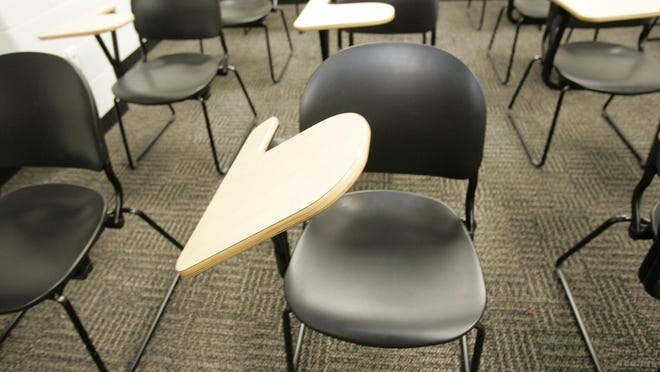Michigan Education Dept. acknowledges it needs to improve special needs schooling
 Jennifer Chambers
Jennifer Chambers
The Michigan Department of Education said Tuesday it is committed to providing a quality education for the state's special needs students even though it is the only state in the country that failed to meet federal special education requirements.
The Detroit News first reported that a U.S. Department of Education evaluation found that Michigan's 2016-2017 performance on meeting the Individuals with Disabilities Education Act "needs intervention." It is the first year Michigan fell into the category after getting rates as "needs assistance" for the past four school years.
Michigan is in full compliance with meeting the reporting and submitting of timely and accurate data of specific indicators required by the U.S. Department of Education, state department spokesman Martin Ackley said in a late Tuesday email.
"However, outcomes for students with disabilities for graduation and dropout rates are below the 80 percent target. Also, a greater percentage of students with disabilities need to participate in the appropriate state and national assessments and show improved proficiency rates in reading and math," Ackley said.
"We are committed to providing a quality education for all students in Michigan, including those with special needs," he said.
Federal officials use both compliance and results data for a “letter of determination” on whether a state "meets requirements," "needs assistance" or "needs intervention."
Michigan’s "intervention" rating came from its high dropout rate and low graduation rate for students with disabilities, education experts say, as well as its poor performance in results data, which includes student assessments.
In Michigan, for students ages 3 through 21, federal education officials said:
- 29 percent of children with disabilities dropped out of school and 63 percent graduated with a regular high school diploma. That's compared with 15 percent and 74 percent in Massachusetts, for example, a state that meets federal IDEA requirements.
- 19 percent of eighth-graders with disabilities and 39 percent of fourth-graders scored basic or above in math on the National Assessment of Educational Progress, or NAEP. In Massachusetts, it was 46 percent for eighth-graders and 59 percent for fourth-graders.
- 22 percent of fourth-graders and 34 percent of eighth-graders scored basic or above in reading on the NAEP, compared to 45 percent and 56 percent respectively in Massachusetts.
Michigan is the only state to receive the "needs intervention" ranking, alongside Washington, D.C., Palau and Northern Mariana Islands, a U.S. Commonwealth.
jchambers@detroitnews.com